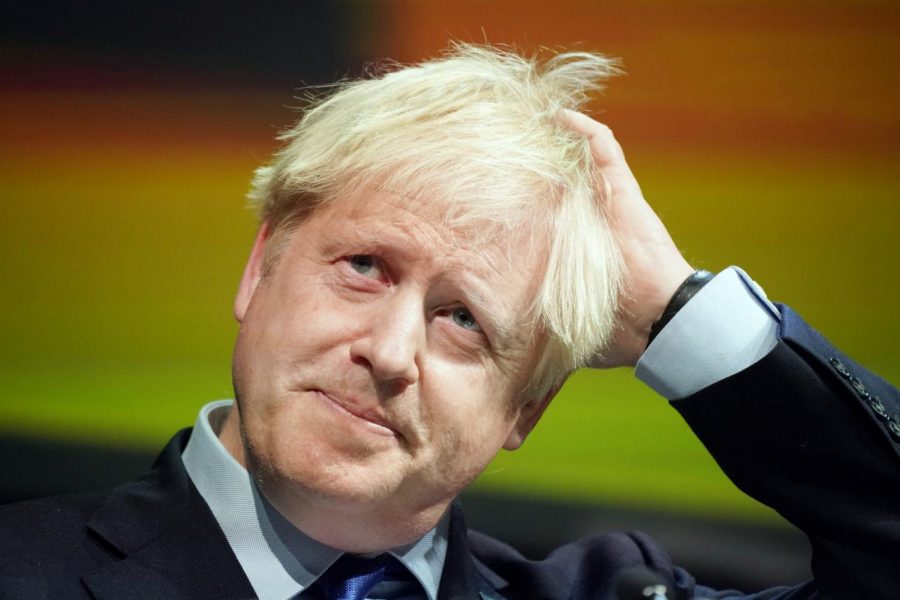More than three years after the 2016 Brexit referendum, the U.K. is embroiled in more political chaos than ever.
The decision to leave the European Union was made after a nationwide referendum held under the government of then-Prime Minister David Cameron. The non-binding referendum saw the “Leave” camp beating the “Remain” camp 52 percent to 48 percent.
The results divided the nation. Cameron resigned, claiming he could not carry out the wishes of the people while he had campaigned to remain in the European Union. Allegations were made of improper conduct by the Vote Leave campaign, and both sides accused each other of false statements about what a post-EU nation would look like. Even today, the margins between the “Remain” and “Leave” camps appear razor thin.
Like in the 2016 U.S. presidential election, social media played a large roll in the polarization of British voters, according to Michael Loriaux, a political science professor at Northwestern University.
“Politics used to be local … Even if you didn’t get along or see eye-to-eye philosophically with the ideology of your neighbor, you at least understood where he was coming from,” he said. “It led to regional bases, for sure, but at the same time, it was much more grounded in pragmatic thinking. There was no room for dogma when you knew the person behind the ideology.”
Now, Loriaux said, echo chambers proliferate that are often driven by no-filter social platforms like Facebook and Twitter.
The country was torn between places like Wales and the placid English countryside, which became staunch “Leave” country, and places like London, where roughly 60 percent voted “Remain.”
The division extended beyond parliament as well. Without a divorce agreement firmly in place, experts have warned that economic and political turmoil may ensue in both Britain and Europe at large.
The government appears to keeping some its concerns close to the chest. Documents pertaining to “Operation Yellowhammer,” a formerly classified government contingency plan for the effects of a no-deal Brexit, was leaked to the Sunday Times newspaper and then released to the public last week after MPs demanded it. It warns of a shortage of fresh food and medical supplies, traffic disruptions, widespread protests and a lack of preparedness due to uncertainty.
“Public and business readiness for a no-deal will remain at a low level, and will decrease to lower levels, because of the absence of a clear decision on the form of EU Exit (customs union, no deal, etc.) does not provide concrete situation for third parties to prepare for,” reads the six-page document.
There are also fears that a No-Deal Brexit could result in a return to sectarian violence in Northern Ireland, a part of the United Kingdom, which experienced massive religious and ethnic conflict between Irish Catholics and Northern Irish Protestants in a decades-long conflict known as the Troubles. Not only did Northern Ireland’s admission into the EU ease the act of crossing the border into Ireland, but the EU currently grants Northern Ireland 1 billion Euros annually in a deliberate effort to curtail violence through agricultural growth.
Johnson’s predecessor, Theresa May, was dogged by Brexit; it led to her eventual tearful resignation in June, cheered by conservatives and liberals alike. The deal May attempted to negotiate with EU leaders for post-Brexit relations was roundly criticized by Parliament and even by members of her own party; among the sticking points were the “backstop” between the Republic of Ireland, an EU member state, and Northern Ireland.
The Republic of Ireland has in recent days stood loyally by the EU, expressing their belief that the British government has not prepared for the necessity of border crossings and infrastructure that will soon be upon them. Hardline Brexiteers, meanwhile, argue the backstop keeps the U.K. too tied to EU customs regulations, particularly in one of the few markets which may improve with Brexit: fishing. When — or if — Britain leaves the EU, they will be free to disregard previously stringent fishing regulations, which many fishermen in Britain have long detested.
For its part, the EU has not budged on the deal struck with May in November 2018.
After winning the Conservative Party leadership election, Johnson took office July 23, swearing in his first speech as prime minister to “fulfill the repeated promises of Parliament to the people and come out of the EU on Oct. 31, no ifs or buts.”
His term was almost immediately embroiled in controversy. After vocal opposition toward a “no-deal” Brexit, members of Johnson’s own Conservative Party rebelled and sided with the opposition in voting on a law to prevent the U.K. crashing out of the EU at the end of October. Johnson expelled 21 Conservative MPs from the party — among them, the grandson of the late Prime Minister and World War II leader Winston Churchill.
Then the prime minister’s own brother, Joe Johnson, quit voluntarily.
And days later cabinet minister Amber Rudd, former secretary for labor and pensions, quit the Conservative Party.
“I no longer believe leaving with a deal is the government’s main objective,” she wrote in her resignation notice.
Johnson’s government suspended Parliament for five weeks Sept. 9 until Oct. 14, just before the Oct. 31 deadline. But after being approved by the Queen — a legislative formality, as no bill has been withheld by a monarch since 1708 — an opposition-backed bill was passed that forces another delay if no agreement is made with the EU by Oct. 19.
Amid concerns from some MPs, including House of Commons speaker John Bercow, that Johnson may try to defy the law, the prime minister is publicly stepping up his overtures toward Brussels. A meeting with European Commission President Jean-Claude Juncker is set for this week, even as a Scottish court ruled last week that Johnson’s suspension of Parliament was illegal.
“… The principal reasons for the prorogation were to prevent or impede Parliament holding the executive to account and legislating with regard to Brexit, and to allow the executive to pursue a policy of a no deal Brexit without further Parliamentary interference,” the summary of the court’s opinion stated.




Kenneth, Jr R Dantoin / Nov 8, 2019 at 9:24 pm
Well written and insightful, I learned something of Brexit beyond that of news media common sound bites.